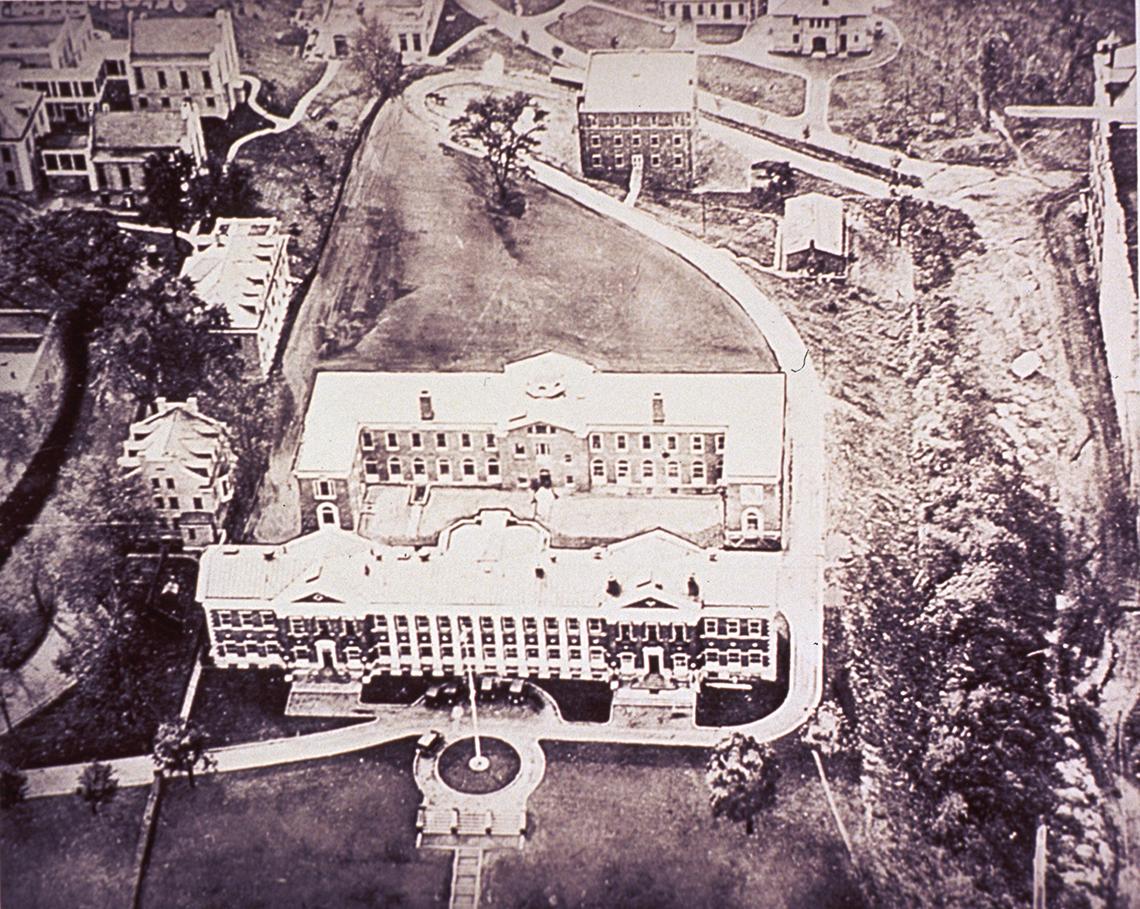NIH’s D.C. Presence Deemed Historic

In January, a small cluster of buildings at Observatory Hill in Foggy Bottom were added to the National Park Service’s Historic Register through the efforts of former employees of the Office of Strategic Services (OSS), which later became the Central Intelligence Agency. What does this have to do with NIH? The buildings were constructed for and first occupied by NIH—which this year marks its 130th anniversary—before it moved to its current Bethesda campus.
In 1901, when NIH was still the Hygienic Laboratory, Congress authorized construction at the 25th and E Street site of a new building. Responsibility for studying and tracking infectious diseases had just been given to the Hygienic Laboratory—there would be no CDC for decades. The next year, the regulation and licensing of commercially produced serums and vaccines also became the Hygienic Laboratory’s responsibility (now FDA’s). In 1919, another building was added to the site. In 1930, the Hygienic Laboratory became the National Institute of Health—singular—with the responsibility for anything to do with disease, and more buildings were added to the Observatory Hill site.
But there was a limit to the site’s capacity. With its increased duties, personnel and animals, NIH needed more room and cutting-edge laboratories. Luke and Helen Wilson donated land in Bethesda in the mid-1930s for a campus for NIH, and most of the laboratories had moved to Bethesda by 1939. The campus was formally dedicated by President Franklin Roosevelt on Oct. 31, 1940.
The story of how NIH moved to Bethesda can be found in 70 Acres of Science at https://history.nih.gov/research/downloads/70acresofscience.pdf.
During World War II, the buildings that NIH left behind at 25th and E Streets NW were turned over to the OSS, which was created in 1942. Perhaps William “Wild Bill” Donovan, head of OSS, and his staff were a little nervous about occupying buildings associated with medical research. But it is fortunate that their colleagues saved these historically important buildings for posterity.—Michele Lyons
